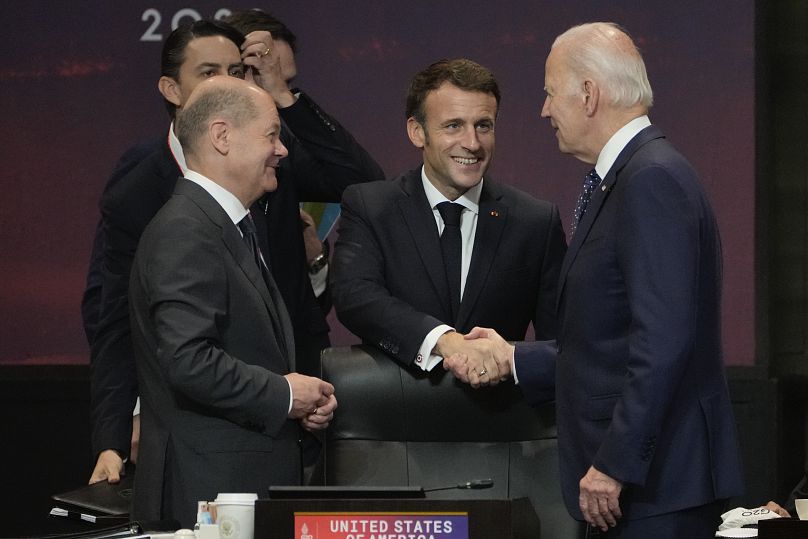The Elysee Treaty championed reconciliation and cooperation between Berlin and Paris after decades of conflict. However, Russia's invasion of Ukraine has put pressure on the two countries relationship
It’s been 60 years since France and Germany signed the Elysée Treaty, a friendship treaty supposed to bury hostility between the two neighbours when it was signed on 22 January 1963.
 ADVERTISEMENT
ADVERTISEMENT
 ADVERTISEMENT
ADVERTISEMENT
But Russia's war in Ukraine has exacerbated tensions between the countries, revealing deep divisions in their strategic visions for Europe.
Strategic Europe’s editor-in-chief Judy Dempsey told Euronews that this can be partly explained by core differences when it comes to approaches to defence.
“It’s essentially how France sees its role in Europe and the role of Europe as looking after its own defence interests and security interests," said Dempsey.
"This is something that Germany is unable to buy into because it’s very bad at doing security and defence. And also, actually, it does realise that the security provider for Germany, and indeed for Europe, remains the US,” she added.
While Paris’ vision for defence is a European one, that is not necessarily the case for Germany: The ‘European Sky Shield’ contract that Berlin signed in October with several EU countries includes defence systems from the US and Israel - leaving Paris furious.
Dempsey also said that Germany has been an obstacle to French President Emmanuel Macron's plan for a more integrated Europe and that it's unclear where Scholz stands on the topic.
Judy Dempsey argues that within the EU, France is the defensive player, and Germany is the economic one.
She adds that the war in Ukraine has boosted NATO, and is pushing Germany to ditch its post-Cold war era links to Russia.
“The whole issue of stability must be central to the relationship between Paris and Berlin. If they can understand how fragile this stability is, that means they can bring on the other member states, and actually give the transatlantic relationship a much-needed boost, with Europe playing a much stronger role,’’ Dempsey told Euronews.
Watch the video in the player above.











